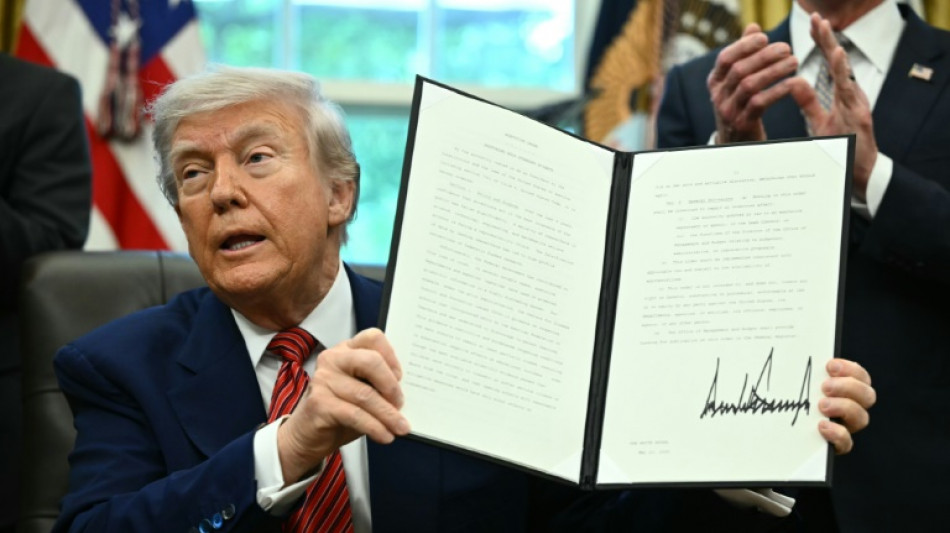
-
 US, Boeing reach deal to resolve MAX criminal case
US, Boeing reach deal to resolve MAX criminal case
-
Anthropic's Claude AI gets smarter -- and mischievious

-
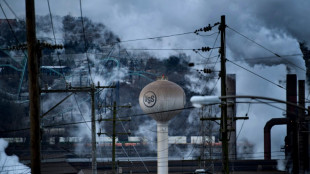 Trump greenlights Nippon Steel 'partnership' with US Steel
Trump greenlights Nippon Steel 'partnership' with US Steel
-
German woman arrested after 17 stabbed at Hamburg station
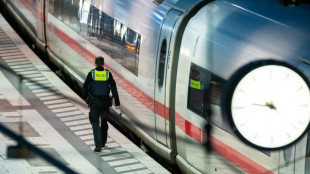
-
 Napoli back on top in Italy after sealing fourth Serie A crown
Napoli back on top in Italy after sealing fourth Serie A crown
-
'Intense' Bath stay on track for treble with Challenge Cup glory

-
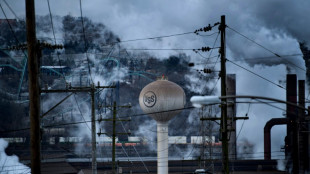 US Steel shares skyrocket after Trump greenlights Nippon 'partnership'
US Steel shares skyrocket after Trump greenlights Nippon 'partnership'
-
Napoli's key men in Serie A title triumph

-
 Bath stay on track for treble with Challenge Cup glory
Bath stay on track for treble with Challenge Cup glory
-
Conte's Napoli future uncertain even after Serie A title glory

-
 McTominay steps out of United's shadow to become Napoli hero
McTominay steps out of United's shadow to become Napoli hero
-
Napoli claim fourth Serie A title as Inter fall short

-
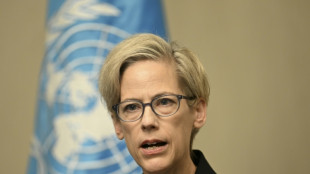 UN expert says Guatemalan anti-corruption fighters persecuted
UN expert says Guatemalan anti-corruption fighters persecuted
-
South Africa rescues all 260 miners stuck underground alive
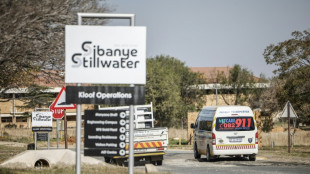
-
 Zimbabwe hundred hero Bennett says Trent Bridge 'war cries' remind him of home
Zimbabwe hundred hero Bennett says Trent Bridge 'war cries' remind him of home
-
Bearman handed 10-place Monaco grid penalty

-
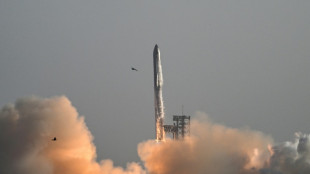 After two setbacks, SpaceX could try to launch massive Starship next week
After two setbacks, SpaceX could try to launch massive Starship next week
-
Billy Joel cancels concert dates over brain condition

-
 Kardashian 'grateful' after Paris robbers convicted
Kardashian 'grateful' after Paris robbers convicted
-
Judge temporarily halts Trump block on foreign students at Harvard
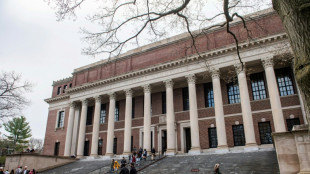
-
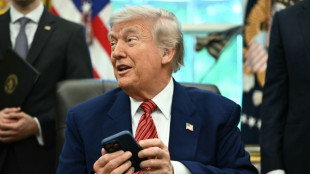 Trump fires new 50% tariff threat at EU, targets smartphones
Trump fires new 50% tariff threat at EU, targets smartphones
-
French-Brazilian photographer Sebastiao Salgado dies aged 81: French Academy of Fine Arts
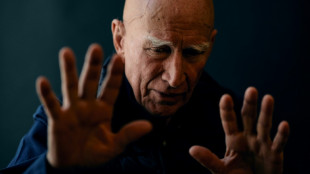
-
 Arsenal 'humble' but 'all-in' for women's Champions League final
Arsenal 'humble' but 'all-in' for women's Champions League final
-
UN expert calls for end of Gaza blockade in Cannes

-
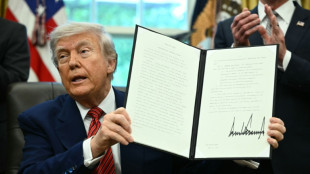 Trump signs orders to boost US nuclear energy
Trump signs orders to boost US nuclear energy
-
US power company to pay $82.5m for California wildfire
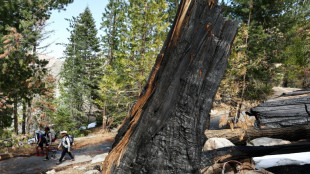
-
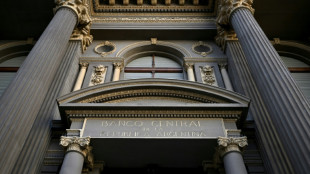 Distrusting Argentines loath to bank their 'mattress dollars'
Distrusting Argentines loath to bank their 'mattress dollars'
-
Kishan shines as Hyderabad defeat Bengaluru

-
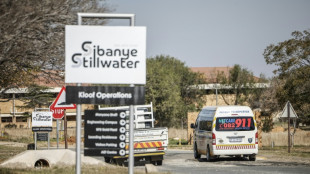 79 miners rescued from S.African shaft, over 100 still underground
79 miners rescued from S.African shaft, over 100 still underground
-
Piastri surprised by Ferrari pace as Leclerc tops Monaco practice

-
 Zverev hoping lightning doesn't strike twice at French Open
Zverev hoping lightning doesn't strike twice at French Open
-
'No chance': Bielefeld embrace underdog tag in German Cup final

-
 How Ronaldo's La Liga ownership foray turned sour in Valladolid
How Ronaldo's La Liga ownership foray turned sour in Valladolid
-
Stokes strikes as England force Zimbabwe to follow-on

-
 'At my own risk', Andreeva vows to continue doubles despite singles success
'At my own risk', Andreeva vows to continue doubles despite singles success
-
Billy Joel cancels dates over brain condition

-
 Thousands hail Spurs' Europa League heroes in victory parade
Thousands hail Spurs' Europa League heroes in victory parade
-
Brazil great Ronaldo sells majority stake in Valladolid

-
 UK retailer suspends Labubu toy sales amid safety fears
UK retailer suspends Labubu toy sales amid safety fears
-
Gauff takes French Open 'motivation' from Madrid, Rome losses

-
 Emery 'proud' of Villa even if top-five bid fails
Emery 'proud' of Villa even if top-five bid fails
-
Leclerc tops Monaco practice to boost hopes of repeat home win

-
 Nuno urges Forest to seal Champions League place for Awoniyi
Nuno urges Forest to seal Champions League place for Awoniyi
-
Suriname president vows oil bonanza won't hit carbon-negative status
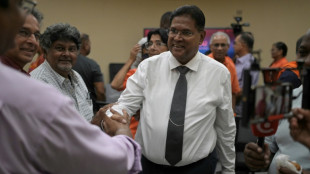
-
 Djokovic closes on 100th ATP title by reaching Geneva final
Djokovic closes on 100th ATP title by reaching Geneva final
-
Twenty-year term sought for French surgeon in mass sex abuse trial

-
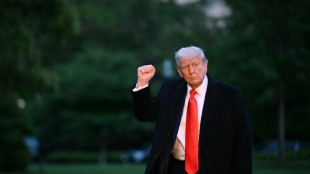 Stock markets fall as Trump threatens tariffs on EU, Apple
Stock markets fall as Trump threatens tariffs on EU, Apple
-
Sinner expects 'different atmosphere' at French Open after doping ban

-
 Rivalry with Sinner 'great' for tennis, says Alcaraz
Rivalry with Sinner 'great' for tennis, says Alcaraz
-
Barca the team others look up to now: Bonmati


Trump signs orders to boost US nuclear energy
President Donald Trump signed a series of executive orders Friday to boost nuclear energy in the United States, including by rolling back regulatory processes on a still divisive technology.
"We're signing tremendous executive orders today that really will make us the real power in this industry," Trump told reporters as he penned the four orders in the Oval Office.
Trump's orders aim to speed up the building of new reactors and to boost domestic mining and enriching of uranium, with the United States relying on imports for most of the crucial fuel.
The US president said the focus would be on building smaller reactors, such as those required by tech and artificial intelligence companies that have huge energy needs.
The orders will also overhaul the US nuclear watchdog so that it pushes through decisions on building new reactors within 18 months, amid reports that the White House found the regulator too risk averse.
Trump denied that speeding up the regulation process could compromise nuclear safety.
"We're going to get it very fast and very safe," Trump said. "It's time for nuclear and we're going to do it very big."
The move comes with growing interest in nuclear energy in the United States, despite being expensive to build and still politically sensitive in the wake of the 2011 Fukushima disaster.
"President Trump is taking truly historic action to usher in the American nuclear renaissance," Michael Kratsios, Director for the White House Office of Science and Technology Policy, told reporters earlier.
- 'Energy emergency' -
A senior White House official said the administration hopes to "test and deploy" new reactors before the end of Trump's second term in January 2029.
Trump's order "fundamentally rehauls" the Nuclear Regulatory Commission, which grants permission for new reactors, by "lowering regulatory burdens and shortening the licensing timeline."
Republican Trump declared an "energy emergency" on his first day back in office to expand drilling for oil and gas and to roll back Democratic predecessor Joe Biden's climate policies,
But he is now also looking at nuclear to meet growing demand.
Much of the demand is fueled by US tech giants, with some including Amazon, Microsoft and Google having recently signed deals for nuclear power as they seek carbon-free electricity sources.
Two US energy companies are also preparing to bring nuclear stations back online, including Three Mile Island -- the site in 1979 of the worst commercial nuclear power accident in US history.
Trump's drive to boost mining and enrichment also reflects the fact that the United States imports most of the uranium that is needed to fuel nuclear power stations.
The US imported most from Canada, Australia, Russia, Kazakhstan, and Uzbekistan in 2023 but in 2024 it banned uranium imports from Russia over Moscow's invasion of Ukraine.
Nuclear power has been undergoing a resurgence in recent years as countries look for carbon-free energy and confront rising prices, fueled by the war in Ukraine.
It suffered a major downturn after Fukushima when a huge tsunami caused a meltdown at a Japanese power station, with Germany in particular turning its back on nuclear.
A.Rodriguezv--AMWN